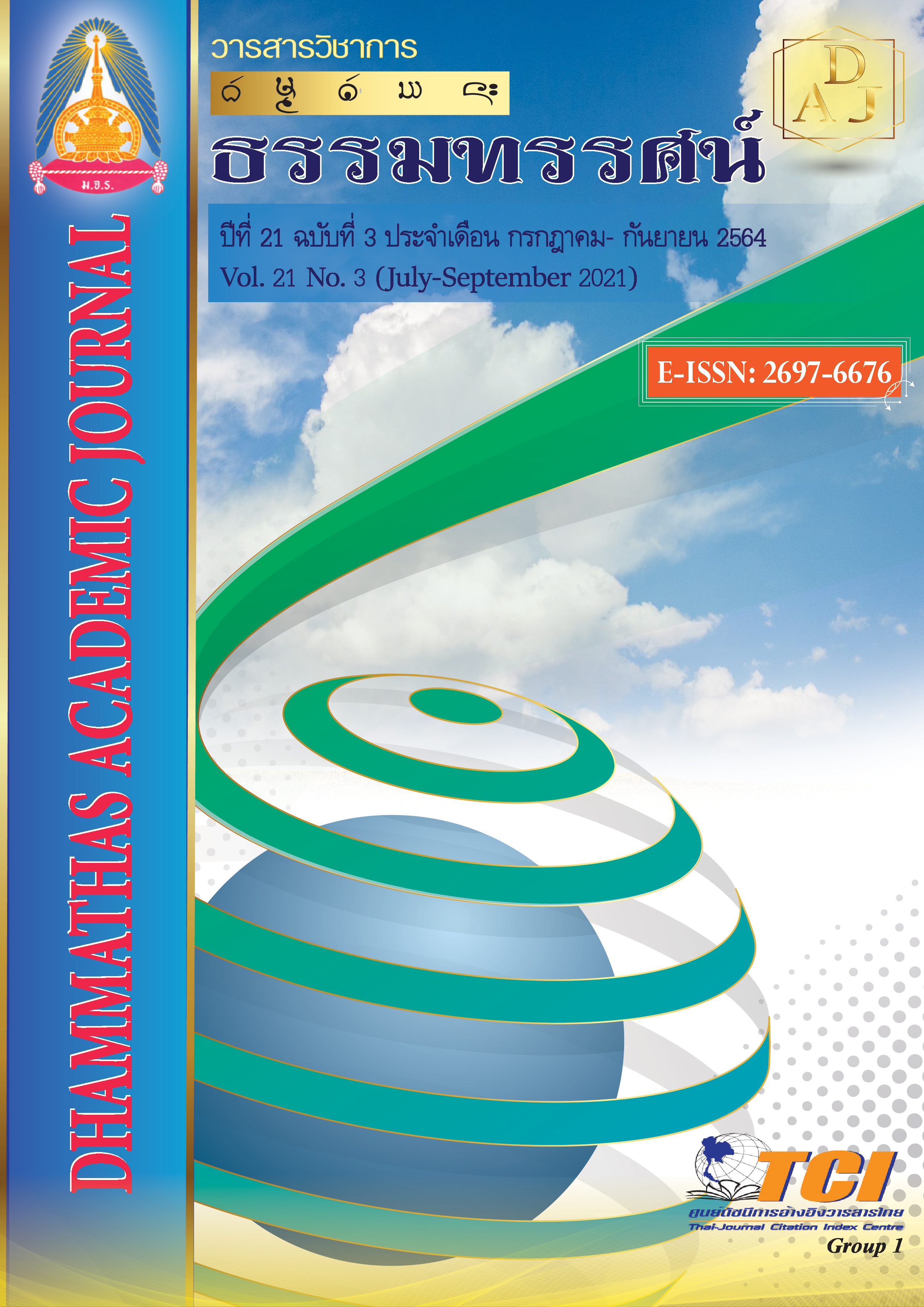A Study of Students’ Satisfaction towards Google Form to Practice English Listening Skill as Self-study of First Year Thammasat University, Lampang Campus
Main Article Content
Abstract
The objectives of this research were: 1) to study satisfaction on the use of Google Form for self-study practice based on English listening skill of first year students in term of time-management, 2) to study suggestions of students regarding the use of Google Form for listening skill in English language course in the future. Quantitative method was applied to research methodology. The sample group in the study consisted of 74 first year students from Faculties of Law, Social Administration, Public Health, and College of Interdisciplinary Studies, of Thammasat University, Lampang Center, enrolled in English Language II or TU 105 for the academic year 2/2018. Research instruments included 1) English listening skill self-study practice via Google Form 2) satisfaction questionnaire on the use of Google Form in English listening skill for self-study. The data obtained from the research were analyzed by using percentage, mean and standard deviation. Content analysis was used to analyze suggestions.
The results of the research were as follows:
1. Satisfaction level was at the highest in terms of time-management, media use and assessment and evaluation. In terms of privacy, learning achievement and conversation, it was found that the levels were at the highest and high. The total mean was 4.77, 4.22 and 4.18 respectively.
2. Suggestions on the use of Google Form in English listening skill development practice for English courses in the future show that a variety of online applications can be applied in relation to listening and speaking English language, such as YouTube, English Talk and Learn English.
Article Details
References
กรมวิชาการ. (2545). การวิจัยเพื่อการพัฒนาการเรียนรู้ตามหลักสูตรสถานศึกษาขั้นพื้นฐาน. กรุงเทพฯ: คุรุสภาลาดพร้าว.
กระทรวงศึกษาธิการ. (2551). หลักสูตรแกนกลางการศึกษาขั้นพื้นฐานพุทธศักราช 2551. กรุงเทพฯ: กระทรวงศึกษาธิการ.
ธนะวัฒน์ วรรณประภา. (2560). สื่อสังคมออนไลน์กับการศึกษา. วารสารศึกษาศาสตร์ มหาวิทยาลัยมหาสารคาม, 11(1), 7-20.
พินิจ มีคำทอง. (2561). เกิ้ลแอปพลิเคชั่น: นวัตกรรมทางการศึกษาสำหรับครูยุคศตวรรษที่ 21. วารสารวิชาการและวิจัย มหาวิทยาลัยภาคตะวันออกเฉียงเหนือ, 8(3), 72-80.
ไพรัชนพ วิริยวรกุล และดวงกมล โพธิ์นาค. (2557). Google Apps for Education นวัตกรรมทางการศึกษายุคดิจิทัล. วารสารวิจัยมหาวิทยาลัยราชภัฏสวนดุสิต, 7(3), 103-111.
สำนักงานปลัดกระทรวงศึกษาธิการ. (2559). แผนปฏิบัติราชการประจำปีงบประมาณ 2560 ของสำนักงานปลัดกระทรวงศึกษาธิการ. กรุงเทพฯ: สำนักนโยบายและยุทธศาสตร์.
สำนักงานเลขาธิการสภาการศึกษา. (2557). แนวทางการพัฒนาการศึกษาไทยกับการเตรียมความพร้อมศตวรรษที่ 21. (รายงานการวิจัย). กรุงเทพฯ: สำนักงานเลขาธิการสภาการศึกษา.
สุภารัตน์ แพหีต และณัฐสุดา กาญจน์เจริญ. (2559). ประเภทของสื่อออนไลน์. เข้าถึงได้จาก https://sites.google.com/site/technologysvc/prapheth-khxng-sangkhm-xxnlin
Johnson, Elaine B. (2002). Contextual teaching and Learning: What it is and why it’s here to stay. Thousand Oaks, California: Corwin Press.

